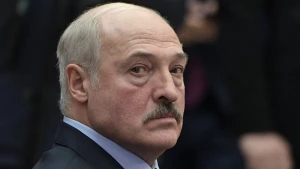
Ukraine starts exporting grain through Croatian ports
Ukraine has started exporting grain through Croatian ports: this route will be improved to expand the capabilities of the transport corridor
This was reported by the press service of the Ukrainian Ministry of Economy.
During a meeting with Croatian Prime Minister Andrej Plenkovic in Bucharest, Ukrainian Minister of Economy Yulia Svyrydenko discussed, in particular, the opening of new trade routes for the export of Ukrainian grain.
It is noted that as a result of continued Russian attacks on grain infrastructure on the Black Sea coast, Ukrainian exports have been significantly limited. However, Ukraine has now started exporting grain through Croatian ports.
"Ukrainian grain has already been exported through Croatian ports. We are grateful for this opportunity. This trade route, although niche, is already popular. We are ready to develop it and expand the capabilities of the transportation corridor. We believe that this logistics route will play an important role in bilateral trade between our countries even after the war," Svyrydenko said.
Transit of Ukrainian grain through the EU
On February 2, Polish farmers began blocking checkpoints on the border with Ukraine. They were outraged that the uncontrolled inflow of Ukrainian grain to Poland had caused prices for their products to plummet. Local farmers argue that Ukrainian grain should have been transported through Poland only to ports, but it ended up on the Polish market.
On April 7, Ukraine agreed to stop exporting grain to Poland.
Earlier, Bulgaria, Slovakia, Hungary and Poland decided to unilaterally ban imports of agricultural products from Ukraine. This was due to the fact that grain imports had a significant impact on domestic market prices. This caused discontent among local farmers.
After that, Warsaw decided to unblock the transit of Ukrainian agricultural products to European ports on April 21. On April 24, Ukrzaliznytsia railways resumed transit of Ukrainian agricultural products through Poland.
Also, Polish Prime Minister Mateusz Morawiecki said that Warsaw and Brussels had reached an agreement on the transit of Ukrainian agricultural imports: primarily grain and corn.
On April 29, the European Commission agreed with Bulgaria, Hungary, Poland, Romania, and Slovakia on the transit of food produced in Ukraine through their territory.
Official Kyiv protested to Poland and the European Union over the imposition of restrictions on imports of Ukrainian agricultural products as contrary to the Association Agreement.
On May 2, the European Commission adopted temporary safeguard measures on imports of certain agricultural products from Ukraine to 5 EU countries.
European Commission President Ursula von der Leyen said that it is critical to restore transportation links across the Black Sea to provide food to the world's most vulnerable countries and to preserve the ability to export Ukrainian goods.
On July 28, Romanian Foreign Minister Luminița Odobescu said that her country plays a significant role in the transit of grain and agricultural products from Ukraine. Almost 20 million tons have already transited through the country.
On August 4, Poland presented the EU with estimates of the investments needed to increase agricultural exports from Ukraine across the Polish-Ukrainian border to world markets.
On August 18, Ukrainian Prime Minister Denys Shmyhal arrived in Bucharest for a visit: together with his Romanian counterpart, Marcel Ciolacu, they signed a joint intergovernmental statement on strengthening cooperation on the transit of Ukrainian goods.
On August 18, Moldovan Prime Minister Maia Sandu said that her country supports Ukraine in the war with Russia and is ready to help with grain transit. She expressed gratitude for the peace.
- News













































